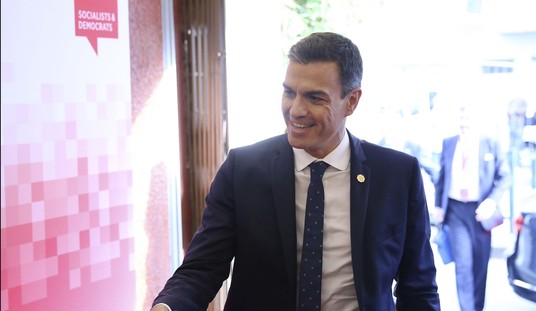James Mattis’ new book hints at his distaste for his former boss Donald Trump. An interview with The Atlantic’s Jeffrey Goldberg hints at a master plan for making it public. Goldberg has to tease it out of the former Secretary of Defense, who remained reluctant to relay disparaging information about Trump and largely avoided doing so. Mattis insisted that he owed Trump his silence — to a point:
“Do you know the French concept of devoir de réserve?” he asked.
I did not, I said.
“The duty of silence. If you leave an administration, you owe some silence. When you leave an administration over clear policy differences, you need to give the people who are still there as much opportunity as possible to defend the country. They still have the responsibility of protecting this great big experiment of ours. I know the malevolence some people feel for this country, and we have to give the people who are protecting us some time to carry out their duties without me adding my criticism to the cacophony that is right now so poisonous.”
Goldberg tried to argue that Mattis had a duty to the rest of the country as well as to Trump. If that leadership becomes a danger, Goldberg wondered, doesn’t Mattis have a responsibility to warn people? Mattis snapped back:
“You don’t endanger the country by attacking the elected commander in chief. I may not like a commander in chief one fricking bit, but our system puts the commander in chief there, and to further weaken him when we’re up against real threats—I mean, we could be at war on the Korean peninsula, every time they start launching something.”
It’s an intriguing argument, one apparently based on potential to do damage to the office as well as the officeholder. Goldberg had argued that everyone has a First Amendment right to speak out against Trump, to which Mattis “absolutely’ agreed. Critics of Trump could do damage to Trump personally and politically. If Mattis, as a former SecDef and military officer, was to speak out in the manner that Goldberg suggests — casting Trump as someone “endangering” the country — Mattis seems to argue that it would damage the office itself and the system of having the people choose the head of state and head of government directly.
Instead of focusing solely on Trump, Mattis offers a prescription to pull America out of the cycle of bitterness and distrust that produced Trump. Trump isn’t the problem, Mattis insists; the problem is the disintegration of the public accord in America. That problem preceded Trump and it will outlast him as well if we don’t start offering some grace and affection across ideological trench lines:
“You’ve got to avoid looking at what’s happening in isolation from everything else,” he said. “We can’t hold what Trump is doing in isolation. We’ve got to address the things that put him there in the first place.” Mattis speaks often about affection: the affection that commanders feel for their soldiers, and that soldiers ought to feel for one another—and the affection that Americans should feel for one another and for their country but often, these days, don’t. “ ‘With malice toward none, with charity for all,’ ” he said. “Lincoln said that in the middle of a war. In the middle of a war! He could see beyond the hatred of the moment.”
So attacking Trump directly outside of the electoral cycle is out, as far as Mattis is concerned. How about working within the electoral system? Goldberg relates part of an earlier conversation with Mattis, when he suggested that devoir de réserve has its functional limits:
I thought back to what he’d told me earlier in the summer, when I had asked him to describe something Trump could say or do that would trigger him to launch a frontal attack on the president. He’d demurred, as I had expected. But then he’d issued a caveat: “There is a period in which I owe my silence. It’s not eternal. It’s not going to be forever.”
Mattis has spent his life in service to his country, defending it from all threats to the full extent of his capability. If he truly sees Trump as a threat, will he remain silent in the next election about it? That earlier conversation hints that Mattis might have his own timetable for confronting the threat, although it probably won’t be as a candidate. Mattis would certainly make a formidable challenger, but he’d probably see his effectiveness enhanced by not trying to promote himself at Trump’s expense. Mattis could choose to start laying out a case for Trump’s political defeat by going public with what he knows, but that could also depend on who Democrats nominate to challenge Trump. If they select an angry progressive, Mattis might just figure six of one, half-dozen of another and keep deploying his devoir de réserve for another four years.
In that sense, Mattis might be firing a warning shot across the bows of both parties: Either clean up your acts or I’ll force you to clean them up. It might be worth it to see how well Mattis can implement that battle strategy — and as always, it’s risky to bet against him.








Join the conversation as a VIP Member